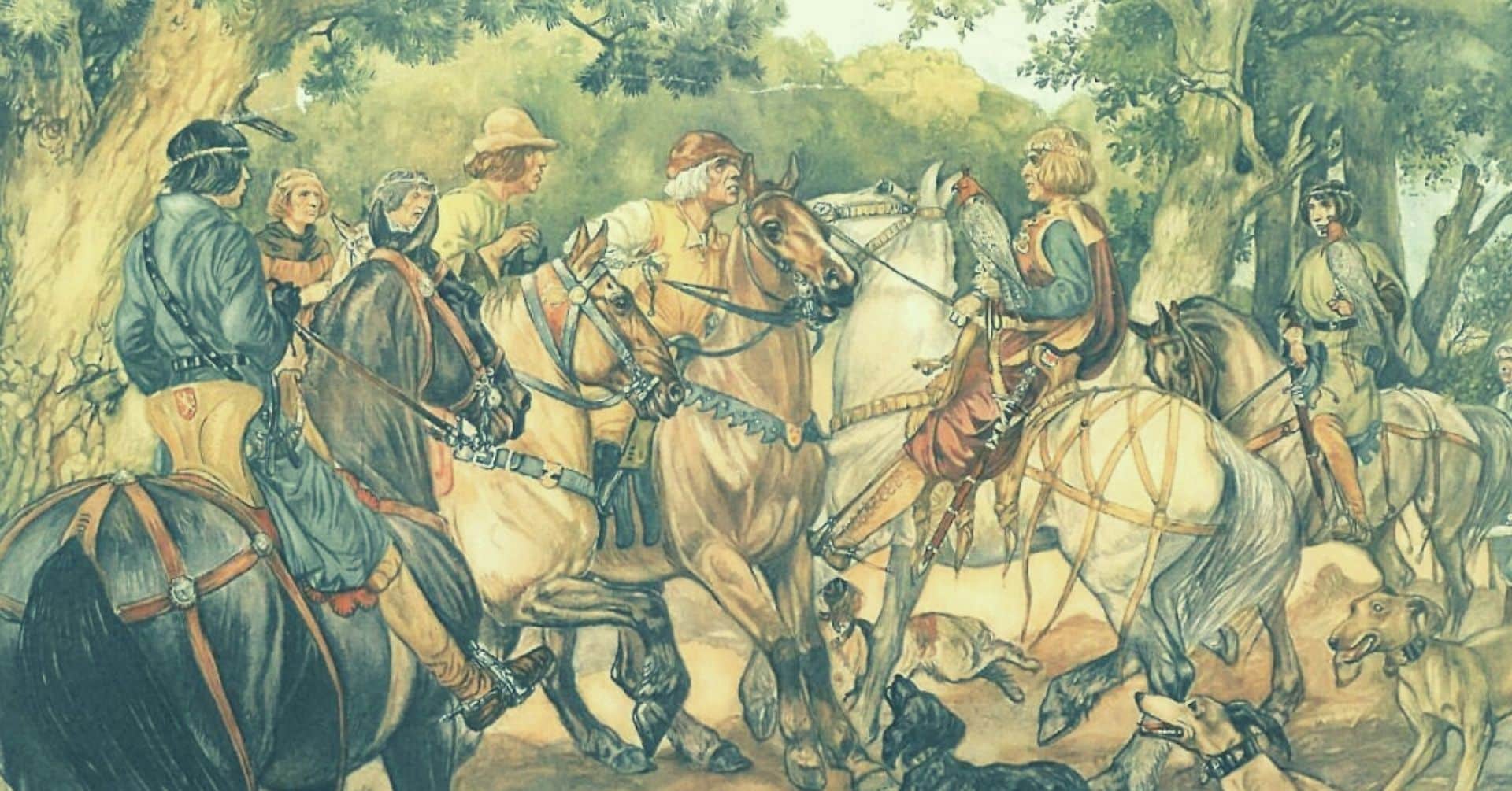In the Tales of Radboud Castle Floris V can of course not be missed. Without him the 'Huis te Medemblick' would not have existed. This is the finale of his triptych. Here you will find part I: the young count and part II: the man with power.
Before this: At the height of his power, Floris feels betrayed, somewhat rightly, by his English friend Edward I. The French seize their opportunity and offer him an alliance: gold in exchange for military support. Floris goes for gold.
Part III: Like father, like son
By signing the treaty with France, Floris is also signing his death warrant, although that is not the angle. For almost before the ink of his signature is dry, Edward I knows that Floris has defected to France. He may be less important to Edward than Flanders and Brabant, but this is not the point either.
Edward comes up with a plan to get Holland back on his side. Through channels, he hires old frenemies of Floris: Gijsbrecht van Amstel and Herman van Woerden. These two still have a lot of old sores and Edward doesn't have to go to much trouble to persuade them.
He wants them to kidnap Floris to England. There Edward will force him to renounce the earldom and transfer all his power to his son John of Holland.
John yes, the future son-in-law of Edward, raised in the English court.
Mistake thanks: the first political murder in Dutch history
Van Amstel and Van Woerden receive help from Gerard van Velsen, another dissatisfied nobleman. The rights that Floris has given to farmers and citizens to keep peace in the tent do not go down well with all the nobles.
In June 1296 the conspirators get their chance: Floris comes to Utrecht to mediate in an old quarrel. He comes and solves everything, including money from his treasury. To celebrate, a falcon hunt is scheduled for the next day.
That's where the monkey comes in. Upon arrival at the appointed place, Floris is seized and his bird taken away. It is then immediately clear that he has lost his freedom, for only a free man may keep birds. The kidnappers take Floris to the Muiderslot castle, awaiting the journey to England. But they have momentarily forgotten how popular he is.
News of his kidnapping spreads through the region like wildfire. Peasants and citizens flock to the Muiderslot castle to free their beloved count. The nobles must act quickly to be able to carry out their plans. They dress Floris in inconspicuous clothing and tie him to a slothful horse, hoping to sneak him away to England.
The liberators don't buy it. When they encounter the group, they claim Floris. The captors panic, and Floris tries to escape. This fails, and to prevent him from being freed, Van Velsen and two others draw their swords and stab him. Van Velsen in particular is unstoppable.
Then the nobles fled and Floris was taken to a safe place nearby. Whether he died instantly or died of his wounds a few hours later is not clear.
The enraged Dutchmen and Utrechters chase the nobles to castle Kronenburg. There the murderers are besieged. When they finally surrender, some of the kidnappers, such as Van Amstel and Van Woerden, have already fled abroad. Van Velsen, however, is present; he confesses to the murder of Floris and is executed.
The nobles involved lose their possessions and most never return from exile. Van Amstel and Van Woerden also die abroad.
Inheritance of a royal family
What Floris leaves behind is mostly chaos in the short term. His son Jan succeeds him, but he dies at 15. The Van Holland family, effectively the first Dutch royal family, is extinct. The county of Holland passes to the Van Henegouwens.
In the long run, Floris V has a better legacy. The highland councils originate from him and cities like Gouda and Leiden receive official city rights from him. Also our own Medemblik has been a city since 1289 thanks to Floris. Even Amsterdam owes a lot to him. It received from Floris in 1275 the toll privilege, from which the later city rights arose.
Facts or fables: food for discussion
Historians do not agree on everything. The murder of Floris is portrayed by many of them as a "crime passionel" of disgruntled nobles. Others are convinced of political murder as described here, even though his death, like that of his father, was not planned. A third group says that he raped Van Velsen's wife and that is why she was so fierce. This seems to be based purely on the play "Geeraerdt van Velsen" by P.C. Hooft. In that play, Floris is the villain anyway.
His nickname "der keerlen god", god of the peasants, also causes debate. This is either a nickname introduced by indignant nobles, after his compromise with the Kennemers in 1275, or it was used for the first time only 100 years later by a clerk, who did not know exactly what to do with the historical Floris. Either way, the name is appropriate.
Furthermore, there is a persistent rumor that the 1969 TV series Floris is based on him. If you look at other historical figures in the series, such as the Burgundian king Philip the Handsome, Long/Great Pier and painter Hieronymus Bosch, it is very unlikely. They lived a few hundred years later, in the early 16th century.
The fact is that Floris was a new leader, moving with the changing society. Together with his father he meant a lot in the field of water management, administration and organization. In his time, the power of the Count of Holland expanded considerably, becoming the most important count of the Low Countries.
Sources:
Canon of the Netherlands / Historiek / Historisch Nieuwsblad / NPO Focus / IsGeschiedenis / De Groene Amsterdammer / Oneindig Noord-Holland / Dwangburchten / Wikipedia

